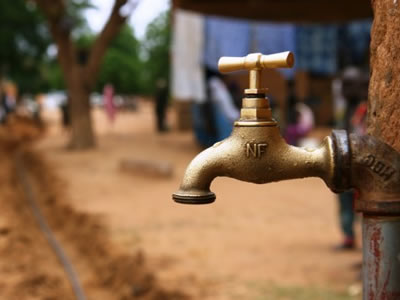A Kenyan water specialist, Miss Ann Obae, has recommended greater participation of community and public/private partnership (PPP) to fast-track the execution of water and sanitation projects in Nigeria.
Obae, a Programme Officer with the Kenyan Water Services Trust Fund, made the recommendation in an interview with the News Agency of Nigeria (NAN) on the sideline of inspection tour of water facilities in some states in Nigeria.
She noted that more communities in Nigeria depended on either the federal or state government’s initiatives and the availability of funds for the sector.
Obae said that rather than depending solely on government and donor interventions, communities could achieve great access through self-help inputs to the sector.
While noting that though Kenya did relatively well in fast-tracking water projects in line with the Millennium Development Goals (MDGs) objectives, its sanitation did not become as vibrant as was expected.
She, however, noted that community participation and PPP were the strategic tools adopted by her country to scale-up sanitation access.
“I think one of the outright things I have noted is that there’s little community drive towards water and sanitation initiatives, what I mean is that the community taking lead instead of waiting on the central government.
“In Kenya we have private public partnerships whereby we have community-based organisations coming in, in terms of waste, we have CBOs that are taking charge of that and charging a little fee to the residents of a given estate and its complimenting the efforts of the municipalities.
“I think that will go a long way ahead in terms of fast tracking the process of ensuring that the whole aspect of water and sanitation is achieved to sustainable levels.”
She also urged political leaders to be more committed toward achieving the MDGs, saying it would help Nigeria to realise its vision for the year 2020.
“I think apart from governments just enacting laws and all that, there needs to be a lot in terms of practice because so many countries are domesticating the legislations to do with water and sanitation but there is very little in terms of commitment, in terms of resources and also maybe enforcing the laws.
“You find that we have a lot of policy papers here and there but there is very little in terms of making sure that whatever that is in the shelves is put to practice.”
In a separate interview with NAN, Mrs Lizzy Igbine, the President of the Water Consumers Forum of Nigeria, spoke on what Nigeria could do to meet up with the MDG objectives by 2015.
She said, “We expect each household to have good convenience. Households should maintain their toilets and ensure that their toilets are clean and safe for use.
“What we are expecting from government is to provide, to assist the less privileged to have confidence to use conveniences so that this country can meet our MDGs.’’ (NAN)



